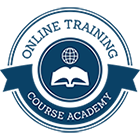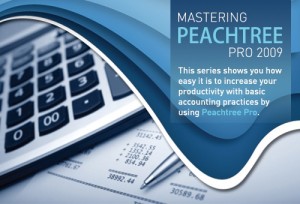A Level course in Religious studies enables students to indulging in studying different aspects of religion and its association with the people. A level course treats the study of religion as an academic discipline, wherein the students are provided with the knowledge, understanding and skills requisite for further specialization.
Product Description
A Level course in Religious studies enables students to indulging in studying different aspects of religion and its association with the people. A level course treats the study of religion as an academic discipline, wherein the students are provided with the knowledge, understanding and skills requisite for further specialization.
We offer full AS + A2 online course on Religious Studies A level, which is specified by AQA.
The courseware helps students to develop enquiring, reflective and critical approaches associated to the study of this subject. Development of these approaches enables students to reflect on their own religious values, beliefs and opinions.
Entry Requirements
Basic English reading and writing skills, as full tutor support is given.
Whats Included
Learning documentation, Online Resources and Tutor support for 2 years.
Course Study Format
Course will be delivered online.
Courseware Support
The biggest advantage of studying with us is that using your unique student account, you can immediately access the course materials online and submit all the question papers to the tutor online. On submission of question papers, you will immediately, receives the email containing the results and feedback.
Study Hours
Study hour is dependent upon the dedication and grasp towards the learning concepts mentioned in the course material. Furthermore, at the end of each lesson there is a question paper that needs to be completed and returned to the tutor.
Learning Hours
Approximately 300 hours.
Assessment Method
The Examination:
The course is examined in below components:
Unit 1 : SCLY1 Culture and Identity; Families and Households; Wealth, Poverty and Welfare
40% of AS, 20% of A Level Written paper
Length: 1 hour 60 marks
Candidates choose one topic from the three available and answer one question. Each question consists of five parts
Available January and June
Unit 2 : SCLY2 Education; Health; Sociological Methods
60% of AS, 30% of A Level Written paper
Length:2 hours 90 marks
Candidates choose one topic (Education or Health) and answer one question on the chosen topic, one question on sociological research methods in context and one question on research methods Available January and June
Unit 3 : SCLY3 Mass Media
20% of A Level Written paper
Length: 1 hour 30 minutes 60 marks.
Candidates choose one topic from four and answer one compulsory question and one question from a choice of two.
Available January and June
Unit 4 : SCLY4 Power and Politics
30% of A Level Written paper 2 hours 90 marks Candidates choose one topic from the three available and answer one question on the chosen topic, one question on sociological research methods in context and one question on theory and methods Available January and June
Exams would need to be carried out at an approved examination centre. Please contact us for assistance.
Exams
Exam vouchers supplied with our courses must be used within the duration of your course. Exam Vouchers become invalid once the course has expired.
Unit 1: (Unit F) Old Testament (Course Code RSS06)
There are four sub-topics for study:
An introduction to the world of the Old Testament
The life of pre-exilic Israel, with reference to the following: a wandering people; a people become a nation; a people amongst other peoples. The following passages will be set for study: Exodus 1516, 1 Samuel 8-10 and 1 Kings 18: 17-46. The issues of: how far the accounts of the Exodus and conquests are credible as history; slavery and freedom; the meaning of nationhood and the significance of kingship and syncretism and intolerance will be discussed.
Old Testament view of Gods relationship with the people
The idea of covenant and its place in the everyday life of Ancient Israel with reference to the following: ideas of covenant in the political life of the Ancient Near East; twentieth century critical views about the making of the covenant and Abraham and the beginning of the covenant relationship; Moses, the relationship formalised through Law and the giving of the Law. The following passages will be set for study: Genesis 17; 22:118 and Exodus 1920. The issues of: the relevance of Old Testament ides of God in the twenty-first century; the significance of the idea of covenant; the impact of critical views on an understanding of the covenant and whether the Law of Moses is relevant in the twenty-first century will be discussed.
The phenomenon of prophecy
The nature of prophets and their function in society with reference to the following: the development of prophecy in the tenth and ninth centuries, with particular focus on Samuel and Elijah; the development of the prophetic experience and the types of prophets. The following passages will be set for study: 1 Samuel 9:1-10:16 and 1 Kings 18:17-19:18; 21. The following issues arising will be discussed: prophets as ordinary or extraordinary people; their credibility in society; the inevitability of conflict between prophets and the authorities of their day in the Old Testament and in other times and the continuing significance of prophetic experience.
Eighth century prophecy Amos
The continuing significance of Amos theme of the relationship between religious practice and morality with reference to the following: his teaching on the nature of God, and Gods relationship with the people; the ideas of election and responsibility; his criticisms of the social, religious and political life of the people and his views on the future of the people, including his teaching on the Day of the Lord. The passage set for study will be Amos. The issues discussed will be: Amos as a prophet of doom; the relative importance of Amos social, religious and political criticisms; the extent to which covenant underpinned Amos teaching; the extent to which Amos may be viewed as a typical prophet; whether Amos was right in his views on God and Israel and his predictions of Israels future.
Unit 2: (Unit G) New Testament (Course Code RSS07)
There are four sub-topics for study:
How the synoptic gospels came into being
Oral tradition with reference to: the reasons for the synoptic gospels being committed to writing; the relationship between the three synoptic gospels; the priority of Mark; reasons for writers editing material as they wrote the synoptic gospels; reasons for translating the original Greek synoptic texts. The issues whether understanding about how Johns gospel came into being assists understanding of the synoptic gospels themselves; the advantages and disadvantages of having three gospels rather than one given the time gap before the gospels were written; uncertainty about their sources and authorship, and whether we can trust them to be accurate or the Word of God.
Aspects of Jesus teaching and action; parables and healing
With particular reference to the passages listed below, candidates will be expected to know about: the role and the purpose of parables and healings as recorded in the synoptic gospels; scholars views of the theology and the teaching found in parables and healings. The following passages will be set for study: The Sower (Matthew 13:323 and Mark 4320); The Tenants in the Vineyard (Matthew 21:3346 and Mark 12:112); Centurions Slave (Matthew 8:513 and Luke 7:110) and Legion (Mark 5:120 and Luke 8:2639). The issues to be discussed: in a scientific age, do Jesus healings have to be rationalised? Is context so important that parables cannot be understood in the twenty-first century? Are scholars necessary to ensure people have a true understanding of the theological messages from the parables and the healings?
The arrest, trial and death of Jesus
Candidates will be expected to know: scholars views of the theological message and the teaching about the person of Jesus provided by the writers in these accounts and the main similarities and differences between the three accounts: Matthew 26:3627:61, Mark 14:3215:47 and Luke 22:4023:56. The following issues arising will be discussed: is there any satisfactory explanation of why the synoptic accounts of the arrest, trial and death of Jesus are so different from each other? Is it possible to deduce from them the reason why Jesus was crucified? Are the accounts of the arrest, trial and death of Jesus historically reliable? How convincing are the claims made about the person of Jesus and his ministry based on the synoptic accounts of his arrest, trial and death?
The resurrection of Jesus
Candidates will be expected to know: scholars views of the theological message and the teaching about the person of Jesus provided by the writers in these accounts and the main similarities and differences between the three accounts: Matthew 27:6228:20, Mark 16:120 (noting the variant readings of the text) and Luke 24. The following issues arising will be discussed: are the resurrection accounts symbolic, historical or both symbolic and historical? Is there any satisfactory explanation of why the synoptic accounts of the resurrection are so different from each other? Is the longer ending of Marks Gospel authentic? How important are the synoptic resurrection narratives for the Christian faith?
Unit 3: (Unit 3E) New Testament (Course Code RST3E)
There are four sub-topics for study:
The context of Johns Gospel
This unit focuses on: the relationship between John and the synoptic gospels; the Christian context, the Early Church and the Greek and Jewish context from which John draws. The following issues arising will be discussed: the debate about the relationship between John and the synoptic gospels; how an understanding of the background to Johns gospel helps an understanding of the gospel; how far Johns gospel was written in response to the situation and needs of the Early Church and whether Johns Gospel be read without knowing about Jewish and Greek thinking and traditions.
The nature, role and purpose of the discourses in Johns gospel
The following are examples of discourses, and candidates will be expected to know about these in particular, although they may exemplify their answers from other material in John to support their answers. Much of the role and purpose will focus upon Johns portrayal of Jesus and his ministry in the following passages: I am the Bread of Life, John 6:3058; I am the Light of the World, John 8:1219 and 9:141; I am the Door of the Sheep, and I am the Good Shepherd, John 10:118; I am the Resurrection and the Life, John 11:144; I am the Way, and the Truth, and the Life, John 14:17; I am the True Vine, John 15:117. These issues arising will be discussed: whether these discourses are Johns interpretation of Jesus teaching; are the issues in the discourses of any relevance to people today; do we really learn very much about the person of Jesus from Johns records of the discourses and whether an understanding of the discourses require an understanding of Christian theology.
The nature, role and purpose of signs in Johns Gospel
The following are examples of signs, and candidates will be expected to know about these in particular, although they may exemplify their answers from other material in John to support their answers. Much of the role and purpose will focus upon Johns portrayal of Jesus and his ministry in the following passages: Water to Wine, John 2:111; Healing of the Officers Son, John 4:4654; The Crippled Man, John 5:118; The Feeding of the Five Thousand, John 6:115. The following issues will be discussed: if John is correct, why would Jesus use signs rather than direct communication; would people at the time have understood the signs as John does; could the signs really have happened and does this matter to John and whether an understanding of Christian theology is necessary to understand signs.
The nature, role and purpose of the passion and resurrection narratives
Candidates will be expected to know the following passages in particular, although they may exemplify their answers from other material in John to support their answers. Much of the role and purpose will focus upon Johns portrayal of Jesus and his ministry: John 1819 Passion narrative and John 2021 Resurrection narrative. The following issues arising will be discussed: whether there is there any history in Johns accounts; is John more interested in the death than in the resurrection; does John see salvation only in these events; are the passion and resurrection narratives really Christian theology.
Unit 4: (Unit 4C) Topic III, Ways of Reading and Understanding Scripture (Course Code RST4C)
With primary focus on the Christian New Testament, candidates must study:
The issues of status and translation: the Word of God or a realisation of Ultimate Reality. The status of translated scriptures.
Different types of literature found in the scriptures and the relevance of the differences.
The issue of status and historicity. An outline of the history of the scriptures from origin to the twenty-first century and the relevance of events in the particular history.
The use and status of scriptures in the religion. Examples of the use of scriptures in worship and how this shows the religions attitude towards the status of the scriptures.
The role of the scriptures in the personal lives of people and in the home.
Teaching arising from the scriptures. Teaching about God or Ultimate Reality. Teaching about the relationship between God or Ultimate Reality and humankind. Teaching about how and why humans should behave in a particular way in all aspects of their lives. Ideas arising from the scriptures about the future both at a personal level and at the level of mankind as a whole.
Approaches to the study of the scriptures. The role of scholars in an understanding or an interpretation of the scriptures. Whether there can be criticism of the scriptures from within the religion and the reaction of the religion to those outside the religion who study and may offer criticisms of the scriptures. The status of personal study of the scriptures and how an individual might seek to gain a full and perfect insight into the scriptures.The relevance of the scriptures for religious people in the twenty-first century. The role of the scriptures in the religions mission work.
Job Prospects
Become fully trained and substantially improve the chances of employment or earn more money!
Qualification NVQ Level 3
Fully recognised UK Qualification. On completion of this course you will be awarded with a Diploma, which is an NVQ Level 3 qualification. It will be awarded by a UK accredited body.
Certificates
Upon completion of the course, you can download the completion certificate as well as any other qualifications you have been awarded.
A Level in Religious Studies
Course Completion Certificate
*Please note, unless stated otherwise or included in package, our online courses only offer course completion certificates ( £10 fee) and in all cases official testing (at a charge made by testing centre) is required to gain officially certified recognised qualifications.
Award
On completion of this course you will earn an A Level in Religious Studies.
Both AS and A2 level courses and examinations must be successfully completed to gain a full A level.
Specification: AQA (Full A Level) 2060, AQA (AS) 1061 and AQA (A2) 2061
Course Information
Please note that the registration to the On Campus student community and licence to print the study materials is included in the course fee. The licence is only for you print, therefore you have to ensure proper availability of cartridge and papers to print the full course materials, if required.
You need to have either of the following packages to access the On Campus area:
• Windows: Windows 98, 2000, XP, Vista, Windows 7 – Acrobat Reader 4.0 and above
• Macintosh: Mac OS X, Mac OS 9.2 – Acrobat Reader 4.0 and above
In the student ‘On Campus’ you can also be a take part of the student chat room and forums, as part of our online student community.
Once enrolled to the online programme, the username and password to access the On Campus area will be sent within 5 working days.
Students are required to arrange and pay for their examinations and manage the course work element, if the subject requires. Students must check the relevant examination board website for further information and final examination sitting dates for the specification.
Textbooks
You can also contact your tutor if you feel you need more practice in any of the areas covered in this course












